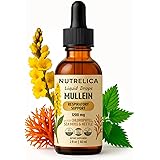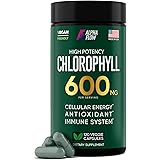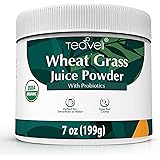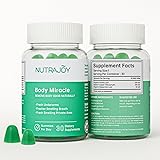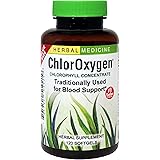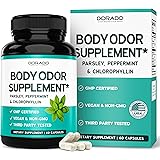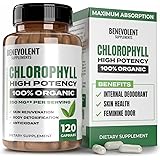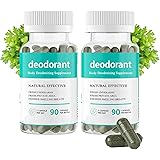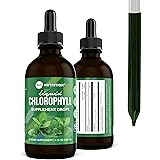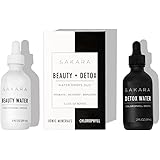The body responds to stress. It produces a hormone called cortisol. High cortisol levels can harm health. This includes poor sleep and weight gain. Stress management is very important. Diet plays a crucial role here. The video above discusses a specific approach. It introduces the cortisol detox diet. This diet aims to balance cortisol. It helps reduce stress naturally. This article will expand on these ideas. A deeper look into this dietary strategy is provided.
Understanding the Cortisol Detox Diet
The cortisol detox diet is a focused plan. Its goal is to lower stress. It also helps balance cortisol levels. This is achieved by supporting adrenal health. The nervous system is calmed. Overall well-being improves significantly. Sleep quality often gets better. This diet is not about deprivation. Instead, it promotes mindful choices. Nutrient-dense foods are emphasized. Foods that spike cortisol are limited.
What is Cortisol?
Cortisol is a steroid hormone. It is made in the adrenal glands. These are located on top of the kidneys. Cortisol is often called the “stress hormone.” It is released during stress. This hormone helps with the “fight or flight” response. It manages metabolism. It reduces inflammation. It also regulates blood pressure. However, chronic stress causes constant high cortisol. This can lead to various health problems. These include anxiety and depression. Sleep disturbances are also common. Weight gain, especially around the abdomen, may occur. The immune system might weaken. The cortisol detox diet works to mitigate these effects.
Emphasizing Nutrient-Dense Whole Foods
A core principle of this diet involves specific foods. Nutrient-dense whole foods are included. These foods support the body naturally. They provide essential vitamins and minerals. They help balance hormones effectively. This strategy strengthens adrenal glands. It also calms an overactive nervous system.
Protein for Stability
High-quality protein sources are vital. They help stabilize blood sugar. This prevents cortisol spikes. These foods also support muscle repair. They aid in hormone production. Beef, chicken, and fish are excellent choices. Eggs are also highly recommended. For instance, a study in the journal *Nutrition & Metabolism* highlighted protein’s role. It can reduce post-meal glucose fluctuations. Stable blood sugar means stable cortisol.
Healthy Fats for Brain Health
Healthy fats are often incorporated. They are crucial for brain function. They also help reduce inflammation. Inflammation can trigger cortisol release. Avocados are rich in monounsaturated fats. Nuts, like almonds and walnuts, provide omega-3s. These fats support hormone synthesis. They promote overall nervous system health. The *American Journal of Clinical Nutrition* has linked healthy fats to better mood. They also improve cognitive function.
Fiber for Gut and Mood
Fiber-rich foods are also important. They support a healthy gut microbiome. A balanced gut can influence mood. It also impacts stress responses. Leafy greens, such as spinach and kale, are packed with fiber. Berries, like blueberries and raspberries, are also good sources. Fiber aids digestion. It helps regulate blood sugar. A healthy gut is linked to lower stress. This connection is explored in *Neurogastroenterology & Motility* journals. Gut health can influence cortisol regulation.
Limiting Cortisol-Spiking Foods and Drinks
Some substances can elevate cortisol. Identifying and reducing these is key. This part of the cortisol detox diet is crucial. It helps avoid unnecessary stress on the body. Mindful decisions are often encouraged.
Processed Sugar
Processed sugar is a major culprit. It causes rapid blood sugar spikes. This triggers a cortisol response. The body perceives these spikes as stress. While complete elimination might be hard, reduction is beneficial. For instance, swapping a sugary soda for water is a simple step. A dessert made with natural sweeteners is another option. Many people find cutting back on sugar challenging. However, the long-term benefits are substantial. Blood sugar stability is achieved. Cortisol levels become more balanced.
Caffeine Considerations
Caffeine is a stimulant. It can temporarily raise cortisol. The video speaker notes their own intake. They have one coffee in the morning. A green tea is also consumed. About 100-200 mg of caffeine before a workout is used. This totals just over 300 milligrams daily. This shows a balanced approach. It is not about complete avoidance for everyone. Understanding personal tolerance is key. Many individuals find moderation works best. High caffeine intake can disrupt sleep cycles. Poor sleep can then increase cortisol. This creates a negative cycle. Therefore, careful monitoring of caffeine is advised.
Managing Alcohol Intake
Alcohol impacts cortisol. It disrupts sleep patterns. It also burdens the liver. The video speaker mentions a significant change. They report no alcohol for over six months. This highlights a powerful commitment. Alcohol can initially feel relaxing. However, it can raise cortisol later on. It interferes with REM sleep. This sleep stage is vital for recovery. Reducing or eliminating alcohol can greatly support cortisol balance. It promotes better sleep. This in turn reduces overall stress. Improved mood and energy are common results.
Hydration and Herbal Support
Hydration is fundamental for health. It supports every bodily function. Electrolytes are also important. They maintain fluid balance. Herbal teas offer added calming benefits.
Water and Electrolytes
Adequate water intake is essential. Dehydration can stress the body. This can raise cortisol. Drinking half your body weight in ounces of water is recommended. For a 150-pound person, this is 75 ounces. This equals about nine cups of water daily. Adding electrolytes helps. They replenish vital minerals. Sodium, potassium, and magnesium are examples. These are lost through sweat. Electrolytes support nerve and muscle function. They keep the body running smoothly. This reduces physiological stress. Energy levels are maintained.
Calming Herbal Teas
Herbal teas provide natural calm. They soothe the nervous system. Chamomile is well-known for relaxation. Lemon balm can reduce anxiety. Passionflower helps improve sleep quality. Drinking 1 to 2 cups daily can be beneficial. These teas contain compounds. They interact with brain receptors. This promotes a sense of calm. They are a gentle way to wind down. They help prepare the body for rest. Incorporating them into an evening routine is often helpful. This supports the cortisol detox diet principles.


